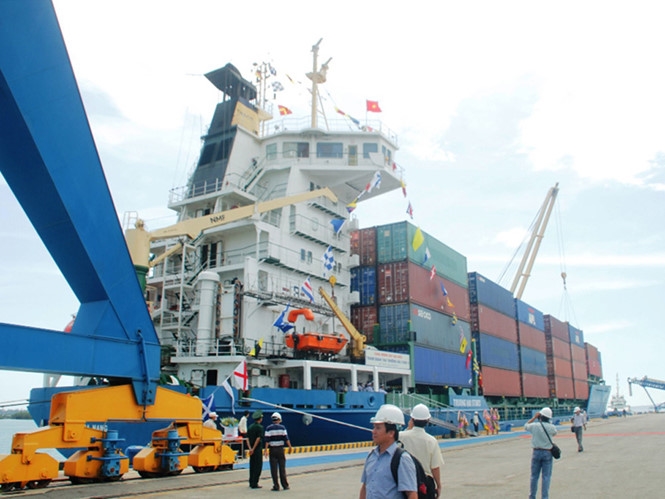 Economy
Economy

Nestor Scherbey, senior consultant at the Việt Nam Trade Facilitation Alliance (VTFA), made this suggestion during a conference held yesterday in the southern province of Đồng Nai.
 |
| Viet Nam remained a safe destination for many foreign-invested companies, and the ratio of foreign-invested firms which used materials and parts supplied by Vietnamese enterprises has been increasing. — Photo thanhnien.com.vn |
ĐỒNG NAI (VNS) —To effectively utilise opportunities through free trade agreements (FTAs) provinces and cities should launch databases on foreign-invested enterprises and domestic suppliers to help domestic firms become suppliers of foreign counterparts.
Nestor Scherbey, senior consultant at the Việt Nam Trade Facilitation Alliance (VTFA), made this suggestion during a conference held yesterday in the southern province of Đồng Nai.
With the assistance of technical experts, provincial governments need to conduct surveys on foreign-invested enterprises in order to define types of materials and intermediate goods that local manufacturers could provide foreign firms. This move would ensure that the final product would be eligible for tax incentives from agreements such as Trans-Pacific Partnership (TPP) and EU-Việt Nam FTA.
Not only localities, he said, but multinational companies should also draw up plans and make changes in their global supply chains, in order to meet TPP’s regulations on origin and that of other agreements if they wanted to take advantage of tax incentives that these agreements could bring, as countries to which they exported their finished products participated in these agreements.
In his speech, Đậu Anh Tuấn, director of the Việt Nam Chamber of Commerce and Industry’s Legal Affairs Department, said Việt Nam remained a safe destination for many foreign-invested companies, and the ratio of foreign-invested firms which used materials and parts supplied by Vietnamese enterprises has been increasing.
A report from the Japan External Trade Organisation (JETRO) showed that the purchase of spare parts from Japanese firms in Việt Nam in 2015 was 32.1 per cent. The rate was higher than 22.4 per cent in 2010. However, the rate was lower than those of Japanese enterprises operating in China with 64.7 per cent, Thailand with 55.5 per cent, Indonesia with 40.5 per cent, and Malaysia with 36 per cent. – VNS




